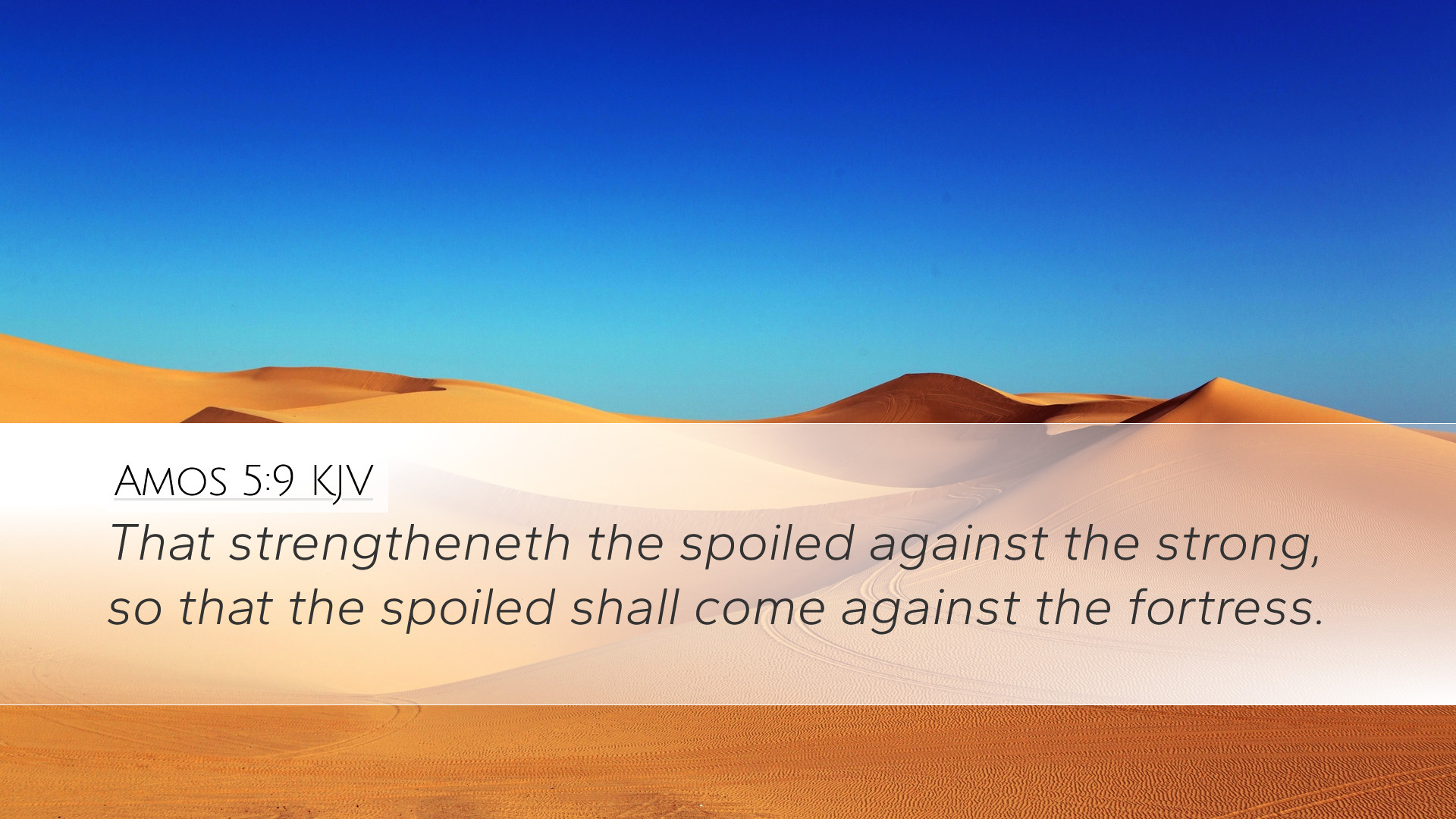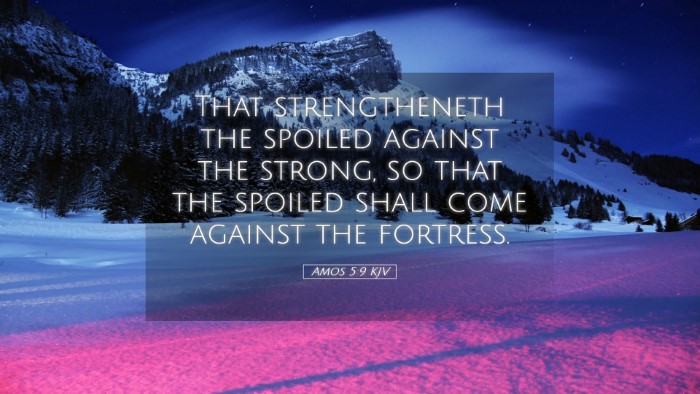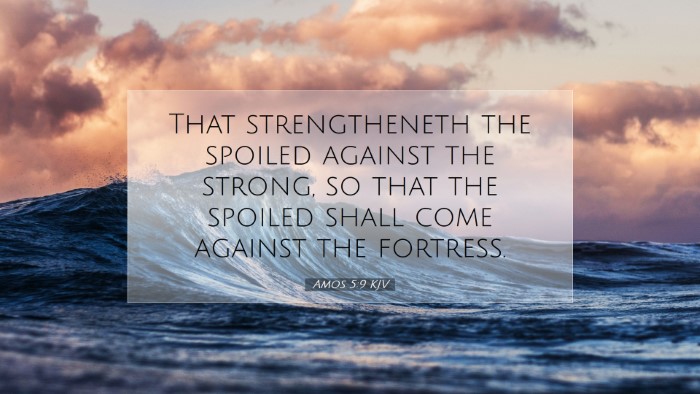Old Testament
Genesis Exodus Leviticus Numbers Deuteronomy Joshua Judges Ruth 1 Samuel 2 Samuel 1 Kings 2 Kings 1 Chronicles 2 Chronicles Ezra Nehemiah Esther Job Psalms Proverbs Ecclesiastes Song of Solomon Isaiah Jeremiah Lamentations Ezekiel Daniel Hosea Joel Amos Obadiah Jonah Micah Nahum Habakkuk Zephaniah Haggai Zechariah MalachiAmos 5:9
Amos 5:9 KJV
That strengtheneth the spoiled against the strong, so that the spoiled shall come against the fortress.
Amos 5:9 Bible Commentary
Commentary on Amos 5:9
Amos 5:9 states: "That strengtheneth the spoiled against the strong, so that the spoiled shall come against the fortress." This verse reflects a profound truth about God’s judgment and the reversal of worldly power dynamics. Here, we provide an insightful commentary on this verse utilizing perspectives from various notable public domain commentaries, including those of Matthew Henry, Albert Barnes, and Adam Clarke.
Contextual Background
Amos, a prophet from Judah in the mid-8th century B.C., was chosen by God to deliver messages of judgment, mostly toward the Northern Kingdom of Israel. His prophecies challenge the existing social injustices, idolatry, and complacency among the people.
The Evaluation of Power
This verse draws attention to God's dynamic power to elevate the lowly and debase the proud. Matthew Henry notes that God is capable of turning circumstances on their head, referencing how He strengthens the weak against the strong. This serves as a divine reminder that human strength and worldly fortifications ultimately crumble under the weight of divine justice.
The Nature of Divine Judgment
Amos 5:9 indicates a God who actively intervenes in the affairs of men. Albert Barnes explains that God's wrath is often manifest against those who appear powerful and invulnerable. The “fortress” symbolizes places of safety and security, where the oppressors might believe themselves untouchable. Yet, it is the 'spoiled,' or those who have suffered injustices, who are empowered by God to overcome these structures of power.
Theological Implications
Divine Justice and Human Agency
One key theme is the intersection of divine justice and human agency. God is not a passive observer; He engages and elevates those who are downtrodden. Adam Clarke emphasizes that this empowerment is not based on social status or strength but on divine will and purpose. It suggests that even what seems weak can be fortified by God’s hand to confront overwhelming odds.
Hope for the Oppressed
For pastors and theologians, this message provides a profound sense of hope. The oppressed are not forsaken; they will rise against overwhelmingly fortified powers that have abused their influence. The 'spoil' indicates a heritage of injustice, potentially referring to the nosedive of the moral fabric of society. This is where God’s glory and power are best demonstrated.
The Role of the Prophetic Voice
Amos serves as the prophetic voice that exposes the inconsistencies between Israel’s self-proclaimed security and their spiritual state. Matthew Henry observes that the call for repentance aligns with the revelation of these truths, encouraging believers to maintain faith in God’s righteous judgment despite current tribulations.
Moral and Ethical Applications
Call for Social Justice
Amos’s teachings serve as a foundational element in advocating for social justice among believers. The powerful must be held accountable, and the needs of the vulnerable should not be overlooked. Albert Barnes points to the necessity of social reform among congregations, invoking a combined call to prayer, justice, and righteousness.
The Response of the Faithful
The appropriate response to this verse incorporates reflection, spiritual readiness, and active participation in God’s mission. Adam Clarke challenges readers to consider their engagement in societal issues: Are we advocating for the oppressed? Are we standing up against systemic injustices?
Conclusion: Assurance of God’s Sovereignty
Amos 5:9 is more than a mere observation of God's power; it is a ringing assurance of divine sovereignty over human affairs. The verse admonishes believers to trust that God's hand is at work, upholding truth and justice. As the Bible scholars dissect these lines, they unveil a holistic understanding of God’s attributes embodied in justice, mercy, and providence.
Through the lens of Matthew Henry, Albert Barnes, and Adam Clarke, we recognize that this verse encapsulates a call to hope for the marginalized, an indictment against injustice, and an invitation to participate in God’s transformative work in the world.


